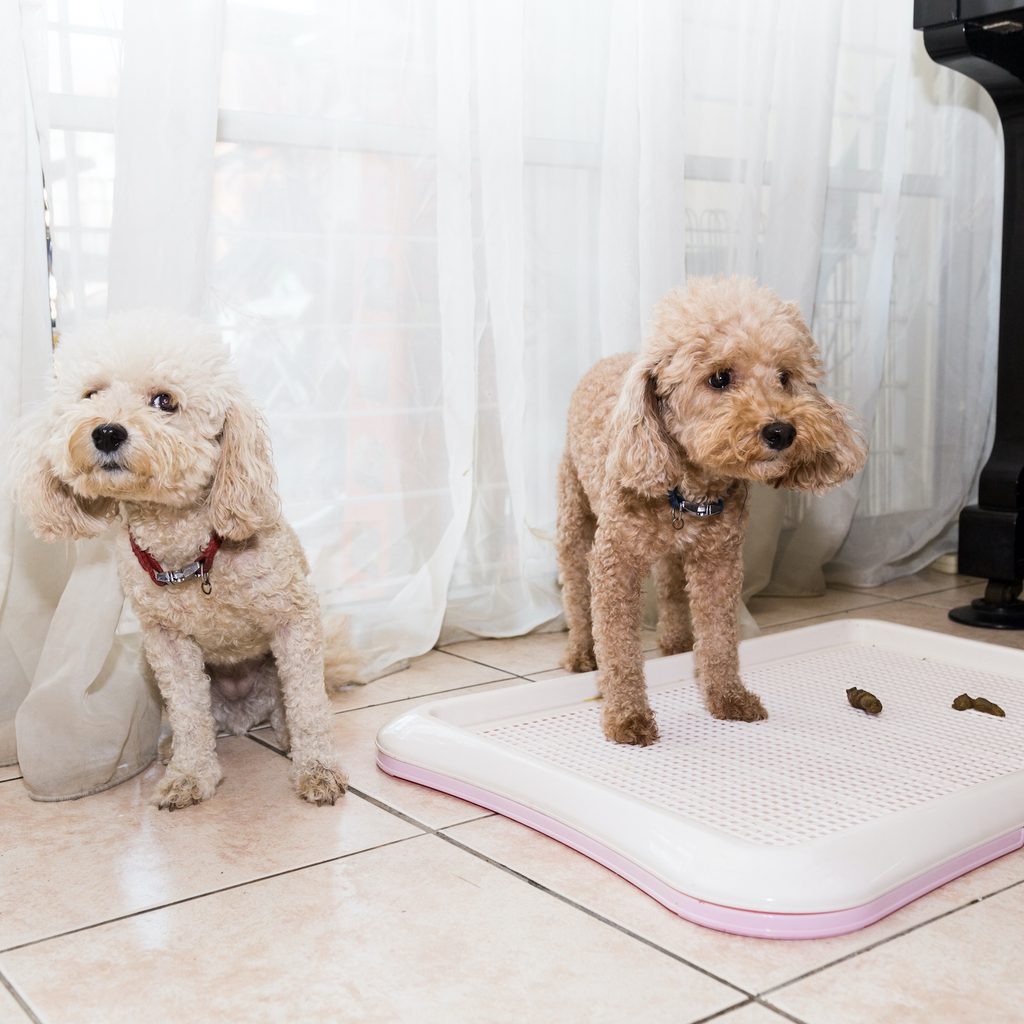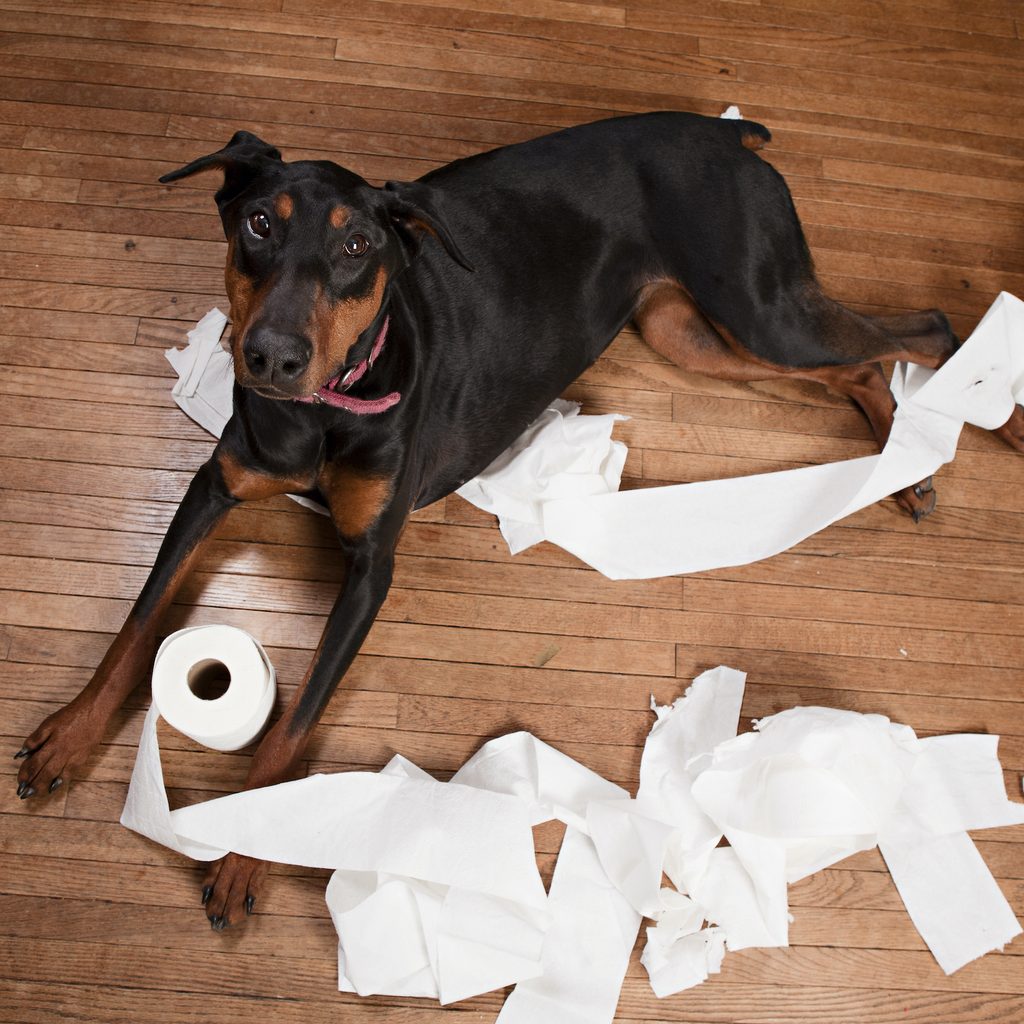Fewer tasks seem as daunting as house training your pup, especially when they first join your family or enter a new environment. Just when you think you’ve got it, your buddy leaves you a little surprise somewhere they shouldn’t. It can feel like going back to square one even with the help of a handy pooper scooper. If you’ve been taking to the Internet with concerns like “my dog keeps pooping in the house,” know you aren’t alone in your frustration.
Many factors can contribute to your dog’s ability to relieve themselves, so it can be tricky to figure out what’s going on. Here are some of the most common reasons why dogs poop in the house and what you can do about it.
Why won’t my dog stop pooping in the house?
You may be at your wit’s end with your dog’s indoor accidents, but it’s important to take the time to figure out what’s behind their incontinence. It may be purely behavioral, but it could have triggers you may never have considered.
Medical factors
No pet parent wants to think about their pup being sick or in pain, but even mild medical concerns can affect a dog’s bathroom habits. A switch in diet, for example, is enough to cause intestinal upset, including diarrhea, constipation, and urgency. Your dog may also experience bouts of tummy trouble if they get into mischief and eat things they shouldn’t.
When a dog is in pain, perhaps due to arthritis or other age-related concerns, they may wait until the very last second to get up to relieve themselves. This can result in accidents in their bed or on their way to the door, notes canine behaviorist Claire Robertson.
In rarer cases, accidents can be a side effect of diseases, including cancer, and their treatments. This is just one reason to update your veterinarian about abrupt changes in your dog’s behavior.
Need for a refresher in house training
Sometimes a dog simply needs to be reminded what the expectations are. This can happen in a new environment, after a traumatic event, or even on an “off” day. Resuming a routine as soon as possible should help get everyone back on track.
Too much time between breaks
If your dog keeps pooping in the house, it’s possible you’re waiting too long to take them outside. Animal behavior consultant Amy Shojai recommends taking an adult dog out to potty at least every eight hours, although sick, old, and tiny breeds may need more frequent trips outdoors.
Separation anxiety
Extreme emotions can sometimes get the digestive system moving, so your dog may feel the need to relieve themselves when anxious or afraid. Separation anxiety is an especially big trigger for indoor accidents since your pup doesn’t have the chance to let you know they need to go out. You may want to treat the emotional problem before becoming too invested in stopping the accidents.
Why does my dog keep pooping in the house even after going outside?
Indoor surprises can become even more frustrating when your dog has recently had the chance to relieve himself in the appropriate place. Keep in mind, though, that simply being in the right spot isn’t enough to make them go. Here’s why:
Stressful environment
Sometimes your dog’s designated potty zone might be less peaceful than normal. Running into other dogs or wild animals, for example, can get them worked up enough to forget about the initial mission. Even if everything is as it should be, some pups are just more nervous than others about going outside. Maybe they don’t like grass, or perhaps the weather just isn’t right!
Distractions galore
While some dogs are stressed in the great outdoors, others love it a bit too much. Whether they’re busy investigating smells or greeting everyone in sight, pooping might be the last thing on their mind.

How do I stop my dog from pooping on the house?
Once you understand the factors behind pooping in the house, you’ll be able to approach it more effectively. For example, if your small dog is going outside once every eight hours, try taking them out once every six hours instead. According to the pet pros at PetKeen, it may help to go on potty breaks first thing in the morning and after meals, when your pup is most likely to need to go.
Whatever techniques you try, stay consistent! Canines thrive on routine and positive reinforcement, so focus on those as much as you can while you adjust your — and your dog’s — schedule. With some patience, encouragement, and an open mind, you and your furry friend can together make a world of difference for everyone in your home.




